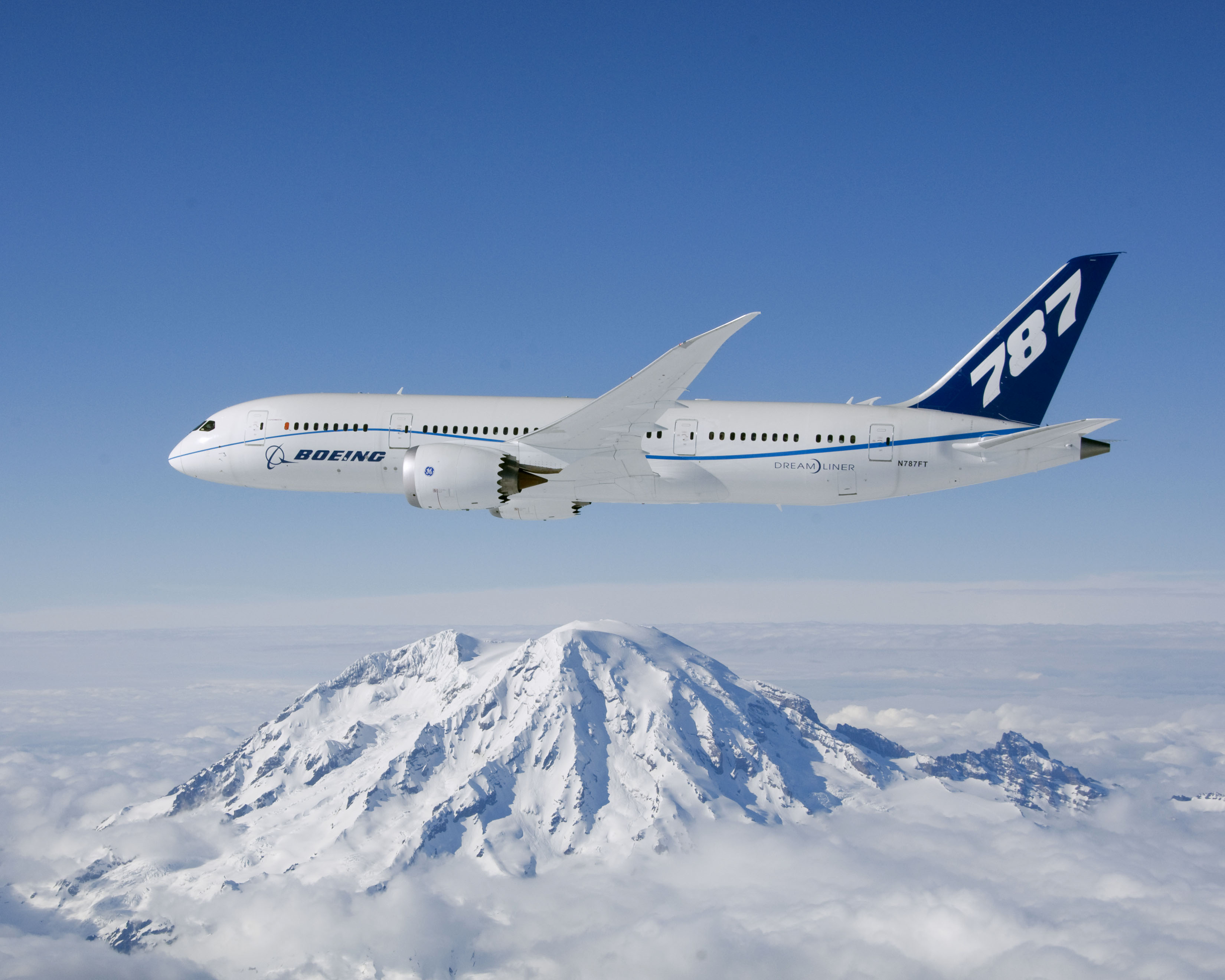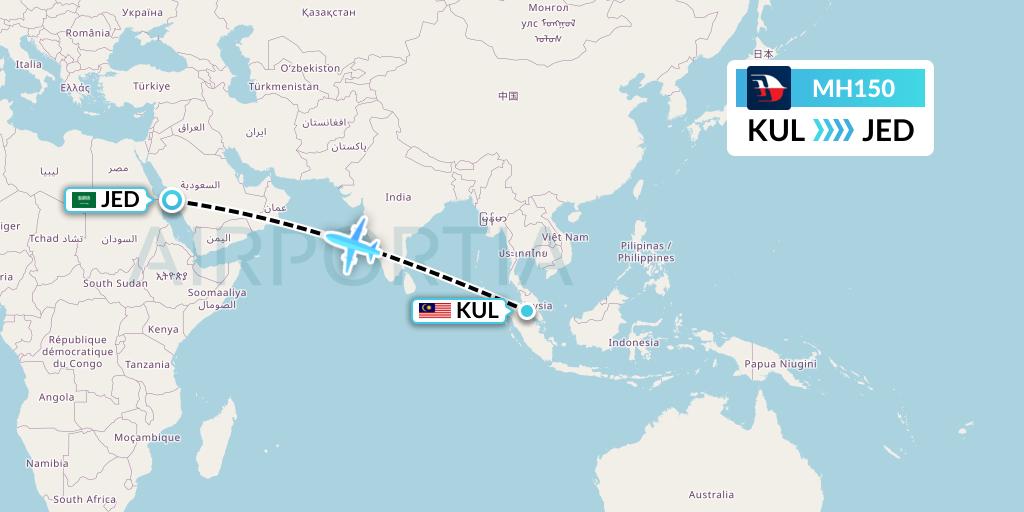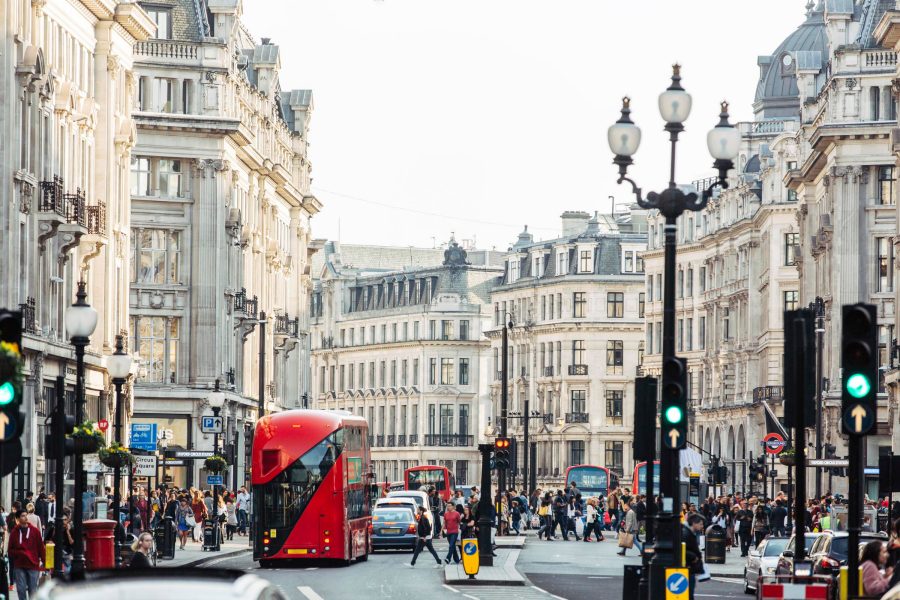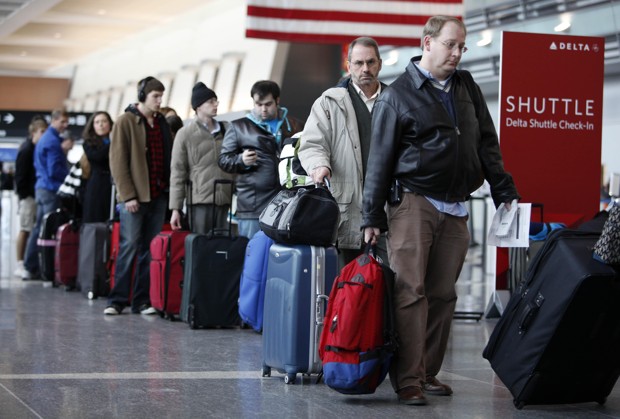Sometimes it’s not just a question of which airlines passengers love but which airlines love their passengers.
The question of passenger rights has always been fraught for travelers and 2017 saw a keen focus on the issue after graphic vision emerged of a 69-year-old doctor being dragged screaming from a United Express plane in Chicago.
There followed a deluge of social media criticism, a wave of stories of people being mistreated by airlines, political threats and warnings of boycotts.
Much of this ignored the massive effort airlines make to ensure a complex global network expected to carry more than 4 billion passengers this year operates safely and, for the most part, efficiently.
But when things go wrong it becomes a question of whether a carrier has your back and what it’s prepared to do to look after its customers.
Unfortunately, there’s no simple answer.
A complicated patchwork of legislation globally leaves passengers protected on some routes but not others, benefiting from compulsory payments in some regions but compensated at the discretion of carriers in others. It’s a situation that can lull travellers into a false sense of security.
At the end of the day, the only way you’ll know precisely the nature of your entitlements is to read the boring fine print. To help with this, a new initiative from AirlineRatings has added basic passenger rights information to many of its ratings.
BASIC RIGHTS
Domestic air passenger rights are stipulated under a carrier’s conditions of carriage, the bits that everybody says they’ve read when booking a ticket but usually haven’t. This will typically tell you what compensation you get in the case of a delayed departure. a cancellation or if an airline loses or damages your luggage.
“It’s a legal contract between the airline and the passenger, where the airline says we will get you from to a to b and if we don’t manage to get from a to b , then these are the rights of recourse that you have,’’ says International Air Transport Association assistant director external affairs Chaitan Jain. “So that’s really the basic document which specifies what are the obligations of the airline.’’
For international flights, air passenger rights are broadly dealt with under the 1999 Montreal Convention, the understandably shortened name for the Convention for the Unification of Certain Rules for International Carriage by Air.
As well as serious issues such as compensation for fatal accidents or physical injuries, the conventions spells out the maximum liability by airlines for issues such as lost or damaged baggage, flight delays or cancellations and denied boarding.
But only about 130 states of the 191 who are members of the International Civil Aviation Organisation are signatories, leaving a patchwork of local regulations across some 60 countries.
Generally speaking, airlines are not required under the convention to provide compensation for extraordinary events over which they have no control but they must provide either a ticket refund, alternative transportation to your final destination or rebooking at a later date of your choice.
These extraordinary circumstances may include political instability, bad weather such as snow storms or the recent US hurricanes, security risks, unexpected flight safety problems and industrial action such as strikes.

Airlines do not guarantee their schedules, although they have a contract with passengers to get them to their destination, nor do they guarantee that they will get passengers on the flight on which they’re booked.
Not that this means passengers are necessarily left in the lurch: full-service carriers seeking to protect their brand will sometimes look after passengers in circumstances where delays are not the airline’s fault.
Such was the case when an Icelandic volcano erupted in 2010 and disrupted travel to Europe. Australian carrier Qantas provided its customers with transfers, accommodation, meals, and incidentals and sent representatives to their hotels to help them through the delays.
By the time the crisis had ended, lost custom and the expense of looking after its passengers had cost the airline $A46m.
In the most recent Bali eruption, Qantas provided a night’s accommodation for passengers whose flights were canceled as part of its customer charter.
The Australian airline provides a good example of what can happen with a premium carrier.
Like many airlines, Qantas aims to notify customers ahead of time about disruptions and if a flight is canceled, it will offer an alternative at no additional cost or provide a refund.
For a flight delayed overnight because of something within the airline’s control, and where a customer is away from home, Qantas provides meals, accommodation, and transfers. It also provides overnight accommodation for customers whose travel is disrupted — often even for reasons beyond the airline’s control.
Those customers arriving at a destination, not their city of residence and whose bags are set to be delayed more than 24 hours can also get money to buy “basic comfort items’’.
“These options are in addition to the rights customers have under their conditions of carriage and are also available to Qantas customers traveling on codeshare services,’’ a spokeswoman says
Qantas can also call on oneworld staff to help customers in foreign ports and takes responsibility for ensuring passengers on codeshare and interline flights reach their destination in the event of a cancellation or a delay.
This means if a flight to Los Angeles is delayed, a passenger missing a connecting flight will be booked on another flight to ensure they reach their destination.
Generally, this happens with two airlines that are in a commercial relationship where they “interline” or “codeshare” and a passenger is ticketed for a journey between destinations serviced by both carriers.
But in these days of self-service travel on the internet, it is easy to get caught out. None of this applies if you buy separate tickets on two airlines.
“As soon as you arrive at your first destination point the contract ends and another contract begins when you take your second flight,’’ says Jain. ”So it’s not considered a single journey.’’
Examples such as the Qantas volcano reaction highlight the fact that while there are similarities between individual airlines’ conditions of carriages underpinned by the Montreal Convention, there can also be significant differences in their approach.
Jain notes that passengers paying for a five-star, full-service airline are more likely to get a better service when things go wrong than those opting for a low-cost carrier.
“I think what will differ is what the airline will do in cases where there’s an irregular operation,’’ Jain says. “This is kind of the consumer choice that’s available in the market.
“And a major point is that’s actually essentially a good thing because it allows passengers to make their own price-service trade-off.’’
MONEY, MONEY, MONEY.
When it comes to monetary compensation, the Montreal Convention uses the International Monetary Funds’ inflation-linked Special Drawing Rights, or SDRs, to stipulate the maximum level of compensation.
For example, damaged or delayed baggage attracts compensation up to a limit of 1,000 SDRs (about $US1410) for each passenger, while delays attract up to 4,150 SDRs ($US5852).
Normally, this is the most airlines are required to pay but passengers can also do side deals.

“Let’s say you’re a passenger and you’re checking in baggage that is particularly valuable, you can say to the airline upfront ‘Look I’m declaring that these are valuable contents and I want to ask for a higher limit should anything happen,’’ says Jain. “The airline can either accept that or not. But otherwise, passengers are limited to those upper-level SDRs that are specified by the convention.’’
And here’s another sticking point for passengers: a number of jurisdictions — including the US and Europe — have rules around these issues but some, such as Australia, do not.
Others are somewhere in between.
Court judgments in some countries which have introduced their own compensations levels have argued the local laws override the Montreal Convention, a situation which does not please the airlines and can make life confusing for passengers.
Europe is seen by consumer groups as having the Gold Standard of passenger rights legislation and airlines are required to pay compensation for denied boarding, cancellation or if a flight arrives more than three hours late.
This comes in at 250 euros for a journey of 1500kms or less, 400 euros for a flight of more than 1500kms within the EU and all other flights between 1500kms and 3500kms and 600 euros for flights for more than 3500 kms.
The payments don’t apply to extraordinary circumstances such as bad weather or when a passenger is informed of the delay two weeks before the flight. The payment `may also be halved if the carrier offers an alternative flight with a similar schedule.
Passengers who are denied boarding or whose flights are canceled can choose between reimbursement, re-routing or rebooking a flight at a later date.
And they are entitled to assistance free of charge while they wait. This includes refreshments, food, accommodation (if rebooked to travel the next day) and transport to and from that accommodation.
Passengers who are downgraded by an airline get a percentage of their ticket cost back ranging from 30 percent to 75 percent, depending on the length of the flight.
But, again, there are exceptions: these rights do not apply to a flight operated by a non-EU airline arriving from a destination outside the union. They do apply to a flight which departs from the EU even if it is a non-EU airline.
Let’s say you’re in San Francisco and you’re flying to London using a ticket purchased from American Airlines but the carrier operating the flight is British Airways. In this case, the EU regulations will kick in because the service is operated by a European carrier.
But the opposite is also true. If you’ve purchased a ticket on British Airways and your flight is actually operated by American Airlines, the EU regulations do not apply.
It should come as no surprise that the European rules are an anathema to airlines, which argue they contradict the convention and create confusion among consumers already uncertain about their rights.
The airlines also worry that the EU rules will be revised to look at delays on the basis of a whole journey and measure it on arrival.
“So let’s say, for example, you fly Emirates from London to Dubai and then Dubai-Sydney and your flight was a bit delayed out of London,’’ says Jain. “You’ve missed your connection in Dubai so you arrive in Sydney with maybe a 12-hour delay because you have to take the next Emirates flight out of Dubai arriving in Sydney.
“One of the things the EU was considering was that that would then trigger 600 euros of compensation because you were late into your final destination in Sydney.
“But how they would enforce that on a non-EU carrier in a non-EU destination is beyond us, frankly.’’
US RULES DIFFER
US regulations are different again in that they consider both operating and marketing carriers.
“One of the big things in the US regulations is this whole notion of tarmac delays,’’ says Jain. “They will say both marketing carrier and the operating carrier should coordinate their tarmac delay contingency plans so they do place some responsibility on the marketing carrier as well in the US case.’’
The US has no federal government compensation requirements for passengers delayed at an airport so airlines are not required to provide accommodation. However, the US does mandate compensation for involuntary “bumping” from an overbooked flight.

Involuntary denied boarding became a hot topic in the US brought after the United incident involving the doctor. The resulting backlash prompted US politicians to warn of greater regulation and several airlines to change their policies on overbooking.
United boosted to as much as $US10,000 the amount it offers passengers for involuntary denied boarding and said it would reduce the level of over-booking. Delta also boosted the compensation available to passengers denied boarding and Southwest Airlines said it would no longer overbook flights.
Mandated compensation for bumping is zero if the airline gets you to your final destination within an hour of your original scheduled arrival time rising to 200 percent of your one-way ticket price (up to $US675) if you are bumped and between one and two hours late on a domestic flight or one and four hours late on an international flight. It hits 400 per cent cent, or a maximum of $US1375, of you are bumped and more than two hours late on a replacement domestic flight or four hours internationally.
US Department of Transportation regulations require airlines to seek volunteers when flight are overbooked before bumping people involuntarily but does not mandate the form or amount of compensation airlines must offer.
The DoT recommends you ask the airline about when it can confirm a seat on a subsequent flight and whether it will provide other amenities such as meals, accommodation and transfers.
But be aware there is pecking order in airlines that sees them look after the best customers first those in the cheapest seats last.
This also usually spelled out in the conditions of carriage and takes into account a passenger’s fare class, itinerary, frequent flyer status and even when they checked in.
The mandated limit for lost or damaged bags on US domestic flights is $US3500 but as with international flights, passengers can negotiate “an excess valuation’’ with a carrier. They are also liable for consequential damages for delayed bags but may not deliver the bags free of charge.
INFORMED CONSUMERS.
So how does the average consumer navigate this plethora of jurisdictions and rules?
“I think the key here is really to be informed, to know before you buy and to make an informed choice from all the different options that re available on the market,’’ says Jain, who adds that airlines are aware of the issues and are investing heavily in technology to reduce delays and other inconveniences such as lost bags.

This is also a point made by Airlines for America’s managing director of government and regulatory communications, Vaughan Jennings.
Jennings notes each US airline has a contract of carriage on their website and complies with US rules to make information such as on-time performance easily available to customers. This is also where they address issues such as the circumstances under which they will put travellers on another flight or pay for meals and accommodation.
“Airlines typically address this issue through direct communication with their customers and that travellers should access their carrier’s website for more information on their individual policies,’’ he says. “I would note that carriers routinely announce policies, which can include refunds and the ability to rebook without penalty, to accommodate impacted passengers during a disruption event.
” In the rare event that a service disruption occurs, airlines make every effort to minimize the impact on the traveling public, their employees and the communities they serve, and most have interline agreements with other carriers that enable them to provide customers additional options for travel.’’
Overall, Jennings says, the system has produced lower fares and increased consumer satisfaction.
“US airlines are committed to offering the highest levels of customer service and routinely go above and beyond to ensure a pleasant flight experience for 2.2. million passengers, we serve every day,’’ he says. “Airlines take any disruption to service seriously and are investing $US1.5 billion per month into products and technologies to make flying better.’’
Consumer groups have a more jaundiced view.
In a statement the US House Committee on Transportation and Infrastructure earlier this year, US Consumers Union aviation consultant William McGee argues industry consolidation and the industry mega-mergers since 2008 of Delta-Northwest, United-Continental and American-US Airways has left the industry too concentrated.
McGee says this has resulted in higher fares in routes not serviced by budget carriers, the downgrading of major airport hubs, fewer non-stop flights, fewer flight frequencies on some routes and a decline in customer service.

Other problems include higher penalties to change travel arrangements, and a fall in the once ubiquitous interline agreements that allowed bumped passengers in the US to be accommodated on rival carriers at no charge to the passengers.
“Record load factors mean more frequent delays, tighter seating, cramped overhead bin space,’’ he says. “And they also less ability for airlines to effectively handle problems as they arise.
“If there’s a mechanical issue with an airplane, for example, and it needs to be grounded for safety reasons, there’s less likely to be space on other flights or a spare plane and standby crew available to step in. So passengers are more likely to be stranded.’’
McGee says the deregulation of the US airline market pre-empted state consumer laws, further compounding the harmful effects of industry concentration.
The Consumers Union is calling for “consistent, uniform, comprehensive, clearly written” set of passenger rights in the US.
It says this could be based on the EU’s passenger rights statement.
Protections it wants on the list include clear and consistent compensation guidelines for flight delays of varying lengths, for flight cancellations, for mishandled baggage as well as voluntarily relinquishing a seat on overbooked flights and for being bumped.
“What we cannot do is continue to leave it to the airlines to decide what rights they will confer, from time to time, in their Contracts of Carriage,’’ McGee says, adding the contracts are lengthy, filled with legal jargon, designed to protect carriers rather than passengers and subject to change “whenever it suits the airline”.
Yet another problem for passengers trying to get a handle on their rights is that passenger rights legislation is not static.
Countries, where passengers have seen changes in recent times, include Brazil, where bag allowances were liberalized and Russia, which liberalized both fares and allowances.
China introduced a passenger rights regime in January broadly in line with ICAO and IATA principles and Turkey removed EU-style delay compensation provisions.
A campaign for increased passenger rights is also underway in Australia, which lags behind even the US in terms of protections.
Consumer group Choice is calling for airlines to provide fixed financial compensation to travelers for flight delays or cancellations that turn out to be the fault of an airline.
It argues compensation should be fair and standardized regardless of the carrier and should not be left to the discretion of airline staff.
A 2016 survey by the consumer group found that 23 percent of passengers experienced a problem with flight delays or cancellations over a 12-month period and almost two-thirds reported almost no help was provided by the carrier.
The survey of 2500 Australians said one in 10 passengers also had no idea how to make a travel-related complaint and 39 percent found it too complicated.
Another institution that has singled out airline passenger rights as an area of interest is the Australian competition regulator.
Under Australian law, consumers are entitled to compensation for any reasonably foreseeable loss due to the failure of a business to deliver a contracted service. Businesses are also required to deal with claims promptly.
In March, Australian Competition and Consumer Commission chairman Rod Sims singled out the airline industry as part of investigation into whether consumers were being “directed away” from legislated consumer guarantees in favour of industry practice.

Sims said this would include examining such matters as how representations about limitations on refunds for inflexible fares and how consumer guarantees could apply to delayed or cancelled flights.
This can be unclear when flights are cancelled due to forces beyond the control of the airlines, ,such as the recent eruption in Bali.
The ACCC says this will depend on the terms and conditions of the airfare, along with the cause of the delay or cancellation, and the circumstances of the individual consumer.
“In cases such as the current Bali volcano incident, where flights have been delayed or cancelled, the ACCC expects that airlines will attempt to provide their passengers with reasonable alternative arrangements to get them to their destination and be flexible in their engagement with consumers,” an ACCC spokesman told AirlineRatings.
“Where these alternative arrangements are not acceptable to a consumer, it is reasonable to expect that the airline will provide a refund.”
Australian consumers should also not expect that will always be able to get compensation for costs incurred as a result of delays, such as accommodation.
Again, according to the ACCC, it comes down to checking the terms and conditions on their ticket.
For passengers, the first line of contact is usually the airline but a number of jurisdictions have consumer or enforcement bodies that can help if that fails.
In Europe, for example, there is an air passenger rights complaint form and passengers can complain to the national enforcement body in the destination EU country.
Australia has an Airline Customer Advocate and US rules require airlines to provide information on how to file complaints on their websites. The first line of communication should be with the carrier but consumers can also contact the Department of Transportation’s Aviation Consumer Protection Division.
There can be remedies with credit card companies but pretty much everybody, including governments, recommends travel insurance. Again there is an element of “caveat emptor” (buyer beware) because not all travel insurance policies are the same and it pays to read the fine print.
Airlines are also aware of the pressures and reputation issues involved in passenger rights and IATA’s Jain argues they are responding, pointing to ongoing investment in baggage handling systems and a reduction in mishandled bags as an example.
The SITA Baggage Report 2017 found the global rate of mishandled bags was 5.73 bags per thousand passengers in 2016 as passenger numbers reached an all-time high of 3.77 billion. This translated to 21.6 million bags worldwide, down 12.5 per cent on 2015.
And ultimately, Jain notes, flyers always have available the oldest of all remedies.
“When you’ve got the extent of competition in the marketplace that we have, you know that customers can vote with their feet or with their wallets to fly on another carrier if you don’t provide adequate service,’’ he says.
























